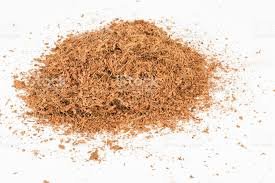Inside BENEO’s new pulse plant: pioneering sustainable protein from faba beans
Huge Demand for Healthy Chocolates among People to Create Lucrative Industry Growth Opportunities
An ongoing report distributed by TMR (Transparency Market Research) on the cocoa fiber market includes worldwide industry investigation and opportunity evaluation for 2020-2030. Income produced from the worldwide cocoa fiber market was esteemed at ~US$ 345 Mn in 2020, which is assessed to ascend at a CAGR of 7.6%, to reach ~US$ 747 Mn by 2030.
Rising Demand for Cocoa Fiber to Manufacture Healthy Chocolates
Milk chocolate, cocoa butter, cocoa fiber, cocoa powder, and dark chocolate are currently witnessing high demand, especially due to their availability in various flavors such as vanilla, mint, and coffee. Moreover, leading manufacturers are introducing new chocolate varieties such as fruits, nuts, and cereals, especially in developed regions where the consumers are looking for healthier chocolate options. Such strategies adopted by the leading players will bode well for the global market.
Increasing Application of Cocoa Fiber in Cosmeceutical Industry Propelling Overall Growth
Consumers have become highly conscious about food they eat and often go through ingredient list of food products before buying it. This has resulted in the increasing use of ingredients used from natural sources in food and beverages. Research has revealed that cocoa fiber is not only enriched with polyphenols but also contains more antioxidants as compared to other products. Antioxidants prevent ageing, keep skin fresh, activate fat burn, and have a stimulating effect.
Several manufacturers have started using cocoa fiber as a key ingredient in their cosmetics, personal care, and health products (Nutraceutical). Driven by this factor, the demand for cocoa fiber will increase in the coming years.
Government Initiatives Aimed at Boosting Cocoa Fiber Production to Aid Growth
Governments across several countries have adopted various initiatives to encourage production of cocoa fiber. For instance, in Ghana, the government has announced plans to introduce cocoa seedling hand pollination and irrigation. Such steps taken by public authorities will aid the expansion of the market. The country only trails the Ivory Coast in cocoa fiber production and aims to increase production to a million tons by the end of 2020. The government has hired roughly 5,000 people to pilot artificial pollination in a number of districts and has promised to provide solar pumps for irrigation in the dry season.
Impact of COVID-19: Cocoa Fiber Market
Europe has the maximum number of bakeries and confectionaries; However, the global crisis caused by COVID-19 has resulted in a drastically changed the global market dynamics. As a result, governments across the world have imposed lockdown to prevent the spread of the novel coronavirus. This factor has severely affected the demand for cocoa fiber.
The consumption of cocoa fiber-based products reduced drastically due to quarantine notices in Spain, France, Italy, and Great Britain, among other countries, and is anticipated to impact the demand for cocoa fiber from processing industries in Europe. Lockdowns imposed to reduce the spread of COVID-19 have also adversely deteriorated the network (supply chain) of several players. The uncertainty caused by the COVID-19 outbreak has interfered the import and export of cocoa fiber due to closing of international borders.

